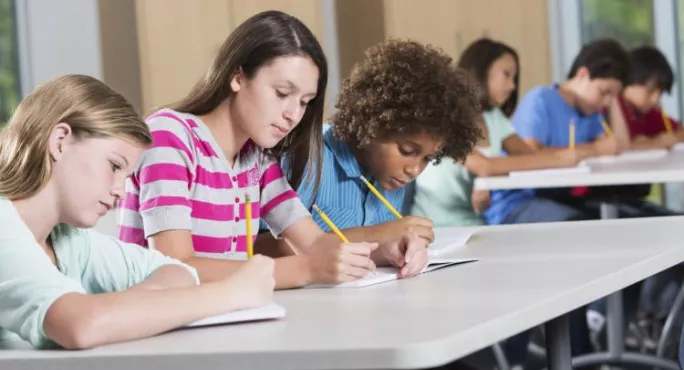- Home
- Lockdown: Call to stop GCSE gap for vulnerable widening
Lockdown: Call to stop GCSE gap for vulnerable widening

Children who have had a social worker at some point during their schooling are significantly behind their peers academically by the time they sit their GCSEs, new research shows.
A study by the University of Bristol and the Rees Centre at the University of Oxford reveals that the attainment gap between these children and their classmates is at least 34 per cent by Year 11.
The research suggests that one in seven of all children in England have come into contact with a social worker at some stage during their school years - and at every key stage of learning these children have worse outcomes than those who have had no intervention.
Coronavirus and inequality: Williamson warned over grading ‘injustice’
Closures: Concern over ‘term-time only’ free school meal vouchers
Viewpoint: ‘For the poorest, school closures are devastating’
School closures and home education amid the Covid-19 lockdown could widen the attainment gap even further, researchers warn.
The impact of coronavirus on vulnerable children
The study, which was funded by the Nuffield Foundation, looked at the academic achievements and progress of children who need a social worker during their school years.
It found that children who have ever been “in need” of support workers suffered an educational attainment gap, on average, of between 34 per cent and 46 per cent in their GCSEs.
Children in need had already fallen significantly behind other children at school by the age of 7, with an attainment gap of between 14 per cent and 17 per cent at this stage in primary school, the research suggests.
For the study, children in need were classed as those who have required the support of a social worker.
Researchers analysed anonymised data of all 471,000 children born in England between 2000 and 2001 and tracked their education through to 2017, when they took their GCSEs.
They also interviewed 123 children, parents and carers, social workers and teachers.
Many parents of children in need said they were living in poverty and found it difficult to afford what their children needed for school, such as computers and internet access.
Professor David Berridge, emeritus professor in policy studies at the University of Bristol, who led the research, has warned that school closures amid Covid-19 could widen the attainment gap between vulnerable pupils and their peers further.
He said: “There are concerns about home education for children. We do know that families of children in need don’t necessarily have good learning environments and there is a problem with poverty.”
The researchers are calling on the government and schools to provide the same amount of support to children in need as they do to children in care.
Professor Berridge said: “While there are many policies in place to support the education of children in care, this is not the case for children in need, who account for three-quarters of all children needing a social worker and are receiving insufficient help.
“Given the huge numbers involved, this needs to be a high government priority so these vulnerable children receive greater support and a better start in life.”
Anne Longfield, children’s commissioner for England, said: “Too many children in this country are growing up in disadvantage, struggling at home and at school.
“The educational prospects for many thousands of children in need are, frankly, terrible. Many leave the education system without even the basic qualifications.”
She added: “The government has promised to ‘level up’ across the country, and this must include properly resourced, cross-departmental strategies for tackling the issues that blight the life chances of the most vulnerable children.”
A Department for Education spokesperson said: “Our priority has always been protecting the wellbeing of children and young people, but particularly those vulnerable young people with or who have needed a social worker.
“That is why we continue to offer school places during the Covid-19 pandemic to the most vulnerable children, and have made £3.2 billion available to councils to cope with pressures, including in children’s social care.
“The government is taking forward action to improve the educational outcomes of disadvantaged children, including investing over £2.4 billion this year alone in the pupil premium to support those who need it most.”
Keep reading for just £1 per month
You've reached your limit of free articles this month. Subscribe for £1 per month for three months and get:
- Unlimited access to all Tes magazine content
- Exclusive subscriber-only stories
- Award-winning email newsletters



